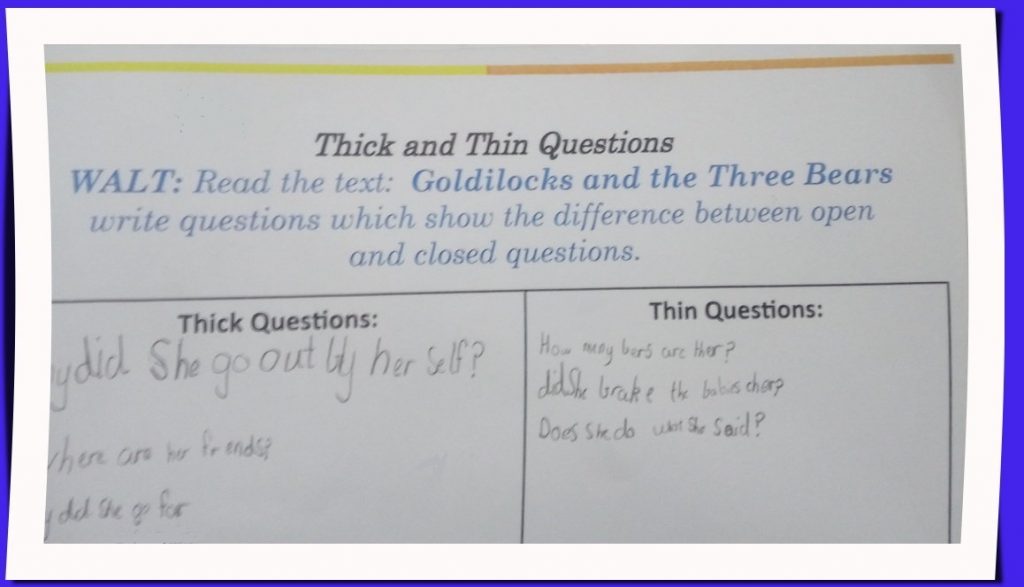I hope you find my writing and business tips and observations useful. My business and blog are dedicated to helping businesses communicate clearly and reach their potential.
Read, subscribe to my newsletter, enjoy!Tash
Incomplete sentences are not useful
Unfortunately, I had to make a complaint against a bank. In doing so, I spotted this incomplete introductory text on their website.
The sentence “In the last 12 months we solved over 150,000 customer complaints and used this” is obviously incomplete. What do they use these complaints for?
I amused myself with potential endings for that sentence…
- used this data to better hide our faults
- used those complaints as fertiliser in our corporate garden
- used this number to calculate bonuses for our top executives
- used these complaints as reasons to reduce staff
However, I assume what they were trying to say was along the lines of ‘we used those complaints to improve our services to customers’. I wonder what other endings people have devised for that sentence, given they are probably already annoyed by the time they reach the complaints page…
If they actually think it is a complete sentence and idea, it is still poor to not add punctuation at the end!
How does your business use complaints and other feedback received?
Good writing matters
Telling me they had so many complaints and leaving the sentence unfinished is certainly not inspiring any confidence in them or their services! It may seem like a simple error, but it can seriously damage your reputation and cost you business.
This is why it is always good practice to reread and proofread things before you publish them. Preferably a day or so after you wrote it as mistakes can be easier to spot later on. And having someone else read your words is an even better safety net.
And then the published page needs to be reviewed. Maybe this text was complete in draft form and something got deleted or hidden in the process of publishing it. If you have read and checked something multiple times, it is easy to skim read and assume all is ok. However, the final version must be checked thoroughly to avoid mistakes like Westpac.
In a big business, I would expect a process so mistakes like this are avoided. For smaller businesses, giving yourself time for checking whenever possible is a safer option.
It shouldn’t need saying, but it must make sense!
Ahh the irony of people giving advice without the skills!
Helping my daughter, I came across an article giving tips on how to write an ‘extraordinary’ speech for school, but much of it does not make sense. I’m really not sure how a student is meant to improve their speech writing via this article.
Examples like this show the value in having someone else reading your work to ensure it makes sense and meets basic grammar rules. The more skilled the person checking it, the better feedback you will obviously get, but even a less skilled person could point out any confusions.
So lets look at parts of that article and see how it could have been less confusing…
understudies?
Article text: …appreciated by your teachers, individual understudies…
My comment: do student usually have understudies listening to a speech? I assume they mean ‘fellow students’ or simply ‘classmates’.
meaning of relief
Article text: …write the same data in each of the paragraphs that are the relief of this subheading.
My comment: Apart from being boring to read if they actually use the same data in every paragraph, I think the article writer needs to learn that relief means to ease or alleviate stress, pain, discomfort and so on. It is unlikely that a subheading feels anything that needs relieving – although I felt relief to stop reading this article!
farewell?
Article text: If your subheadings and speech are moving farewell then they can make the Audience bored, otherwise, your speech will be very good.
My comment: I don’t know what this sentence is meant to say! “If your content is moving forward” is what I first thought it should be, but that doesn’t work with making the audience bored. Maybe farewell should be replaced with slowly?
A much smaller issue is the capital A for audience as it is totally unnecessary and visually stood out to me as wrong.
becoming insensitive
Article text: The first lines … are to speak at certain points so that … everyone becomes insensitive and attracts all the speech. Your first lines are the first impression on your audience.
Comment: This implies that the aim of a school speech is to make people insensitive which is a pretty strange aim – again, a use of vocabulary that is not understood causes big problems in writing. If you aren’t sure of a word, use one you do know – big words are not impressive if used poorly.
As for “attracts all the speech”, I think this means “engages the audience quickly so they listen to all the speech”.
avoid disturbance!
Article text: Between the teachers day speech looking at the Audience is not to be disturbed and you have to control your emotions and to point with your hands so that Audiences are attracted and keep their voice down and down.
Comment so it makes sense: oh my goodness, where do I start with this paragraph?
- using ‘between’ requires two end points (between 5 and 6, between the start and finish, between the speaker and audience) – clearly this sentence does not have that
- ‘looking is not to be disturbed’ would be simpler and more relatable as ‘maintain eye contact’ or ‘look at your audience’. Disturbed also implies external distraction and that is pretty hard to prevent whilst writing a speech!
- ‘control your emotions’ makes sense but I disagree with it – no emotion in a speech makes it bland and less likely to be listened to
- ‘point with your hands’ is out of context and would not help a student learn – what do they point out? how much pointing should they do? does lots of hand pointing really work with controlled emotions? what has pointing hands got to do with writing a speech (the purpose of the article)?
- ‘audiences are attracted’ – again, vocabulary has let the writer down again. Attentive would be a much better word here
- ‘keep their voices down and down’ – personally, I’d prefer my audience to be silent and attentive rather than just talking in low voices
what can you do?
Well, the above hopefully gave you a giggle at some poorly worded tips! And hopefully reminded you of the importance to checking that your work makes sense and reads as you intend.
The key lessons from this article are
- get someone else to review your work before publishing it
- use words you know instead of trying to impress with fancier words
- keep on topic
- remember your audience – use language they understand and don’t make it hard for them to read your work
Always include critical details when writing promotions
What is the point of promoting something without explaining how to get it?
Due to my connection with Love Santa, I keep an eye on Christmas news around the world. Recently, I went to a site to read about some Christmas movies coming up – it mentioned things like Home Alone and How the Grinch Stole Christmas (one of which is debated to its place as a Christmas movie every year!) This is a news type site with a section on entertainment – it was Australian but I hadn’t been there before.
What struck me though was the lack of basic and critical details. Paraphrasing, the article said “SuperChannel {made up name!} is starting some Christmas movies in November and here’s their full schedule”‘ then listed all the movies for November.
The article had some links to other pages on the site about types of movies and so on, but no link to SuperChannel.
Personally, I have never heard of SuperChannel so I’m pretty confident it’s not a free to air TV channel. So how do I see movies they play? It is within a subscription to an on-demand service? Or maybe its an online channel of some sort?
Write it, don’t assume!
When writing, for pleasure as well as business really, make sure you give necessary information rather than assume people know it. Even when you know the audience well, be careful to not miss important details.
From the article I mentioned above, I can now tell you when Home Alone will be showing. I have no idea how to find it and watch it, so knowing the timetable is fairly useless. Maybe the writer or site assumes ‘our site members knows SuperChannel’ but what about new members or people coming across the article (as I did) for the first time? What about the members who know the name but can’t recall access details?
Even if your audience does know the basics, where/how to access something you are promoting is critical information to include.
How long is your drink?
While there is an expression about having a long drink, length is not usually a measure of drinks. So I was surprised to see an ad for 300m of a soft drink in some recent junk mail!
As always, the message is that proof reading is really important. And it is best done by someone else or at a later time as proofing as you write has limitations.
Of course, the person preparing the ad may have written 300ml but something happened at the design or printing stages – but that is why printing proofs also need to be checked carefully.
Consistent terminology
Do you know what a closed question is?
I’m sure I didn’t learn about open and closed questions until much later, but my children are learning this in primary school. This is a good thing as it can help them communicate socially as well as within their school work.
Closed questions – elicits a simple response. For example, the question “do you like blue or green?” can be answered with one word.
Open (or open ended) questions – give scope for more detailed and complex responses. Open questions such as “why is blue your favourite colour?” or “what do you like about that book?” require longer answers and can lead to a discussion.
Thick and thin questions?
Have you ever heard questions referred to as thin and thick questions rather than open and closed?
The first time I knew of the thin/thick nomenclature was when I saw some work my daughter did at school. I know enough about open/closed questions to figure out what was meant by thin and thick so I interpreted the schoolwork very quickly. And I assumed the children had been taught thin/thick instead of open/closed.
Then I read the schoolwork in more detail.
The instructions swap between thick/thin and open/closed questions without any explanation that they are the same concept (and not even in the same order which makes it even harder to correlate the pairs of words). Given that this activity is obviously aimed at teaching children about open/closed questions, surely it would be better to use the same terminology for the one activity.
It’s one thing for me as a professional writer to read these instructions and follow them easily. It’s something else entirely for a seven year old who is grappling with what these terms mean and finding examples of each type!
And my daughter said they were only taught about open/closed questions – she figured it out (and I think she did a good job devising relevant questions in the activity). I’m sure many of her classmates would have struggled if they were left to do this activity just by reading the instructions.
The lesson?
If you start using one term (or set of terms) when writing, then continue using that term throughout.
Even if you explain there are alternatives, stick to one term in your content. For instance, if you are writing about saving money, you may write something like
Contributing to your savings can be done more or less frequently. Contributions, also known as deposits or account credits, will attract interest and thus increase your savings over time. When deciding how much to contribute, you may consider your income, expenses and lifestyle choices.
You may not be writing for children, and your audience may easily figure out your message, but why make it harder to read than necessary? Why risk them not understanding and/or disengaging in your content?
Being consistent makes your writing easier to read and understand, looks more professional and will probably help search engines recognise a keyword in your online writing.
Who can read the sign?
We attended an indoor play centre recently for a child’s birthday party.
I spotted a sign on a wall opposite an inflatable slide, within the enclosed rock climbing area, that I think was missing the audience.
Where the sign was
The sign was up on a wall and printed in a large font so it should have been useful.
However, it was on an angle that made it hard to read except for by children rock climbing.
Surely putting it above the inflatable would have been more effective as it would be visible at the time you would be considering climbing up the forbidden walls.
What the sign said
Remembering this was in an indoor play centre where most of the patrons are under eight years of age, the sign was not written for the audience.
Apart from the very young children who can’t read at all, many youngsters would not be up to reading ‘inflatable’ and many would not know the word ‘banned’. Even for those who can understand the sign, it will be most effective if people get it instantly, without having to think about its meaning.
The inflatable is more known to children as the big slide, so that is the type of language they would be better using.
A much simpler sign would be “Do not climb up the slide”.
I think this is simpler and more effective, but also has a second meaning as it tells children not to climb up the slide itself, as well as not climbing on the support walls.
It is always important to know who you are aiming your communications at, and aim for clarity more than cleverness.
Communicating to potential voters
Throughout Victoria, we are about to vote for our local councils.
Unbelievably, in my ward, there are 21 candidates for us to choose from to select 3 councillors!
This is a lot of people to consider while trying to choose my vote and is a bit overwhelming but it is useful from a communications perspective as I can see big differences in their statements.
Candidates’ statements
So, putting aside politics and any particular platforms these people are standing for, here is a summary of the candidates I can choose this week. I am basing this on the official statements prepared by each candidate that were sent to us by the Electoral commission, and I am not using anyone’s real name!
group 1 – sole platform
George – has a personal dislike to something other residents are doing so wants us to vote for him to stop that behaviour.
Fred – is retired and is standing to get better deals for older residents.
Sally – is mum to young children and will fight for better services for new mums and for families.
Communications – all three of these people have written a reasonable statement that is easy enough to understand and sound like reasonable people. I just find it difficult to trust someone who is obviously going into council for their own best interests.
group 2 – political
Jenny – states she is affiliated with a major political party but lists various local issues and experience to show relevance. The second half of her statement is more formal and is about policies, sounding much more like a politician than a local councillor.
Ed – does not state any political affiliation but the statement sounds formal and like a federal election campaign piece. It is not law that candidates state they belong to a party (and follow part lines) but this is a contentious issue of late. All sounds pretty perfect really…
group 3 – mixed platforms
Rachel – the current councillor and someone who is involved in our community – and the only one most people I know have met or seen around. Her statement shows her passion, is easy to understand (both through competent writing and using approachable language and style) and ends with “I ask you to vote for me” (rather than demanding it). She covers a number of issues.
Angus – a young person who grew up in the area and covers a number of issues in his statement. Again, it is well written and readable.
Communications – there are others in this group but all of them discuss a number of issues in clear English and declare no connection with a political party.
group 4 – questionable
David – started his statement with “7 years house designing in Shanghai; Melbourne.” No, I don’t know what that means either – and as he works in the IT industry and is standing for a council role (not a council planning job!), it makes little sense.
David’s statement has many examples I could use in my bad writing posts – “Experience in retails…Involving security issue with PM…I pointed city apartment…Successfully suggested VCAT improve hearing procedure with writing hearing” {the lack of final full stop is copied by the way!}
Due to his poor written communication, I don’t understand what he is standing for – even when I can guess the meaning of a sentence, I can not be sure if he is for or against that issue!
group 5 – pushy
Simon sent a SMS to some people, outwardly to remind people of the need ot vote, but everyone I know of (and others according to local media) were irritated by this message. Simon came across as pushy and people felt their privacy had been invaded by these messages sent to private mobile phones.
Other than the SMS, Simon fitted into group 2 but I know at least two people who voted him as number 21 purely due to the SMS. As I have said at various times, being aggressive and overly confident in communications often backfires (with Australian audiences anyway).
Communicating with potential votes
Obviously, there are other ways these candidates can promote themselves to the voters but let’s limit ourselves to these statements. Because that is the only way most people in our area get information to make a choice in the elections.
There is a wide selection of writing styles – from someone who does not know how to write in English, through those who write good conversational English, to those who write formal, professional pieces. Just this choice of style will have a big impact on how voters will perceive each candidate.
Given there are 21 candidates (and apparently some areas have many more than that!), many voters will not read the statements in depth nor do other research. So the style and approachability of these statements is critical for their success.
Who to vote for?
Based purely on their communication skills as described above, who would you vote for if you lived in this area?
Who would you not vote for? This is possibly an even more important question for anyone trying to learn how to communicate effectively to get positive results.
Good communication can vary
So what is good communication?
I’m sure there would be many answers to this, but generally we mean being able to effectively give our message to another person (s).
That being the case, how do we classify something as good communication and set rules for good communications?
Communication impediments
While there are some basics that help with clear communications face to face, such as making eye contact, not interrupting and being polite, such things are not always possible and we may need to work around them.
Today I came across a blog post about communicating face to face and I was surprised and somewhat horrified by one of the tips given. Basically, the writer suggested that you should avoid stammering or stuttering as it can hinder clear communication. He did not allow that it was unavoidable for some people and implied it was just a behaviour they were choosing to exhibit.
There are impediments for some people in conventional communicating – blind people can’t meet your eyes, deaf people may focus on your lips instead of your eyes, someone with Tourette’s syndrome or Asperger’s may seem impolite and various people (including stammerers) may be harder to understand.
And yes it may be easier for us if those people did follow the ‘rules’ of good communicating, but they can’t so we have to learn to be patient and understanding. I found it insulting that this writer included ‘stop stammering’ as a means of communications.
Have you come across examples of people setting communication rules that are excluding certain groups of people? Or people with rigid ideas of what good communicating look like?
Sticking to instructions
Trying something new is always challenging and a bit nerve wrecking.
So it’s easy to rely on sources of information to help the process.
Making tile adhesive
We are doing up our bathroom so needed adhesive to attach the tiles to the bathroom walls. After research, we decided to use adhesive powder rather than a pre-mixed adhesive.
To make the adhesive, it is a simple matter of mixing some of the powder with water. Of course, how much of each is somewhat important!
The packet included instructions for making the adhesive to the correct consistency. However, the instructions were to mix 20 kg with 6 litres of water.
Trying to convert those instructions into mixing usable quantities was difficult – giving a weight rather than volume of the powder was particularly difficult. Meaning our first attempt was too wet and wasn’t going to hold the tiles well enough.
Clarity in instructions
We figured out a good consistency for the adhesive, eventually, and now have some lovely tiles stuck to our walls!
But learning from others’ mistakes, here are my tips for making instructions for useful:
- Remember who the instructions are for and make them suit. That is, don’t assume the person reading the instructions knows as much about your product as you do. If you are only writing for experienced people (in our case, professional tilers), you may be able to give less information than if writing for inexperienced users (such as DIY tilers).
If you have more than one audience, ensure the instructions are simple enough for the less experienced group. - Aim for clarity so people understand how to use your instructions. You can do this through
- avoid jargon
- do multiple small steps instead of a few large steps
- use short sentences
- use simple language and sentence structure
- if the product has different uses, explain how instructions vary between those uses. For example, if floor and wall tiles need adhesive with different consistencies, say something like “Add 6 litres of water for floor tiling and 5 litres for wall tiling” rather than “depending on the consistency of the mix required”.
- Where measurements may vary, give a ratio or multiple examples. I’ll expand on that in my next post 🙂
- Put instructions where they are easily seen – not just so they can be found but so that they are easy to refer to whilst using them. Again, with the tile adhesive packet, the mixing instructions were in amongst paragraphs of text.
What interesting experiences have you had with hard to understand instructions?










Recent Comments